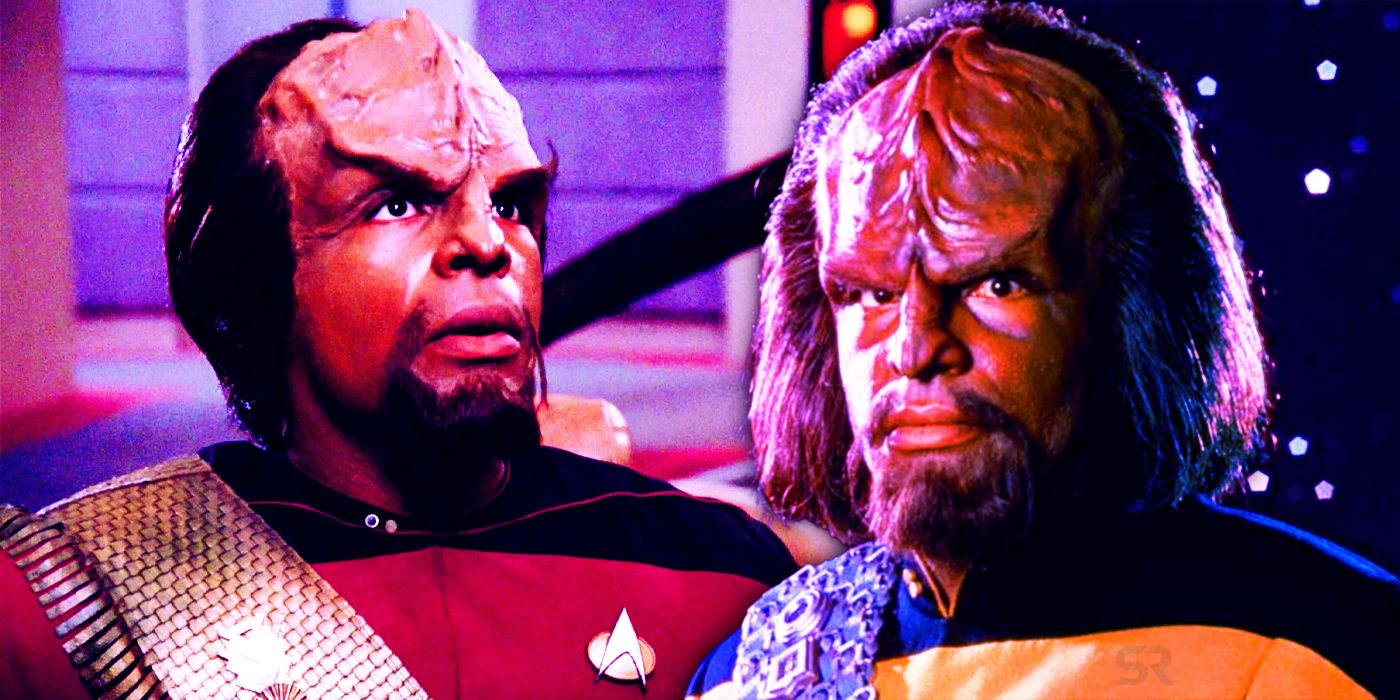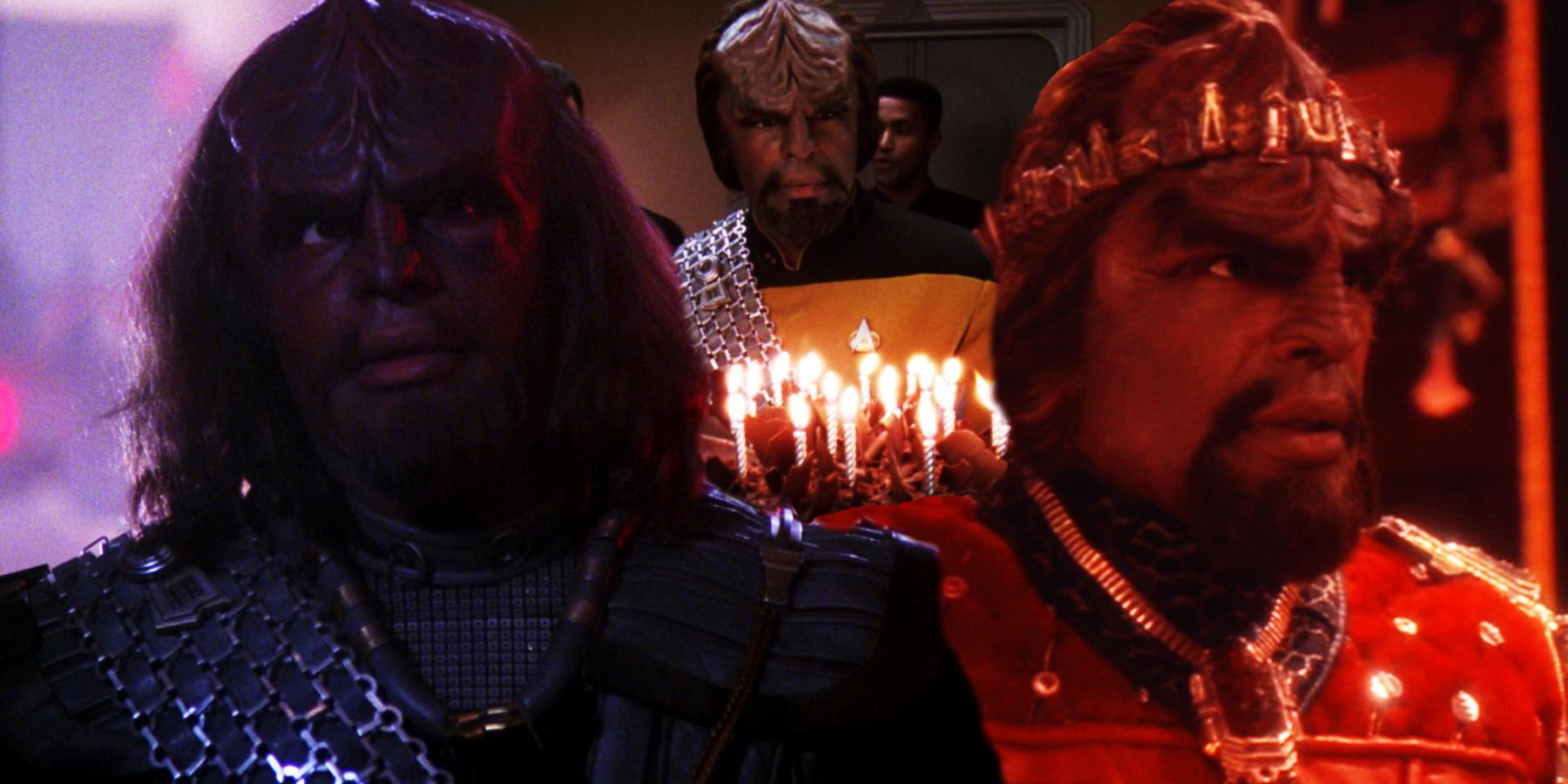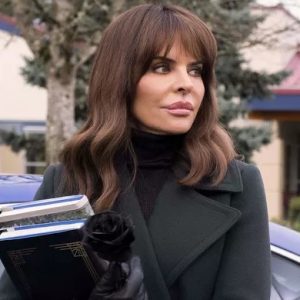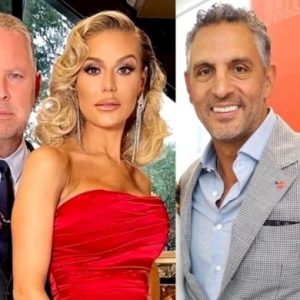Star Trek series creator Gene Roddenberry didn’t like the idea of Michael Dorn’s Lt. Worf being more than a background character on TNG.

Summary
- Gene Roddenberry viewed Lt. Worf as a background character, not a major character in Star Trek: The Next Generation.
- Writer Ronald D. Moore had to convince TNG executive producer Rick Berman to keep Worf’s major role in the show.
- Worf’s presence helped evolve the Klingon Empire, bridging the gap between Starfleet and the Klingons and providing a unique perspective on their culture and politics.
Star Trek series creator Gene Roddenberry hated the idea of Lt. Worf (Michael Dorn) being a main character in Star Trek: The Next Generation, and considered Starfleet’s first Klingon officer a background character. Worf’s presence as a valued member of the USS Enterprise-D’s bridge crew meant that hostilities between the Federation and the Klingon Empire had cooled since the days of Star Trek: The Original Series. Worf had also been part of TNG‘s regular cast since season 1, and a compelling character in his own right, particularly after Lt. Tasha Yar’s (Denise Crosby) death meant Worf’s promotion to the Enterprise’s Chief Tactical Officer and Chief of Security.
Writer Ronald D. Moore penned the Star Trek: The Next Generation season 4 cliffhanger, “Redemption,” a script that delved into the politics of the Klingon Empire and Worf’s role relative to the High Council after previously accepting discommendation to protect the Klingon Empire. In The Fifty-Year Mission: The Next 25 Years by Mark A. Altman and Edward Gross, Moore recalls a conversation with TNG executive producer Rick Berman regarding Roddenberry’s negative opinion of Worf. Read his quote below.
I was with [producer] Rick [Berman], and he said Gene wanted to throw the script out. I couldn’t believe it, and Rick said, “Well, Gene doesn’t think that Worf is a major character on the show. In Gene’s mind, Worf was a character that he put on the bridge just to put into the background so that you could comment on the fact that the Klingons and the Federation were at peace now. I know we all see it differently, but in his mind Worf is not a major character in the show. Gene doesn’t want to do a whole cliffhanger about him.” I was, like, that’s crazy! And he said, “I know, I know, but that’s how he feels. I’ll go talk to him again and we’ll figure it out.” And Rick figured it out and I never heard about it again. But it is crazy. Whether Gene felt that all the way through or that’s just what he was saying at that point is the question. Certainly there had been episodes about Worf before that, so he wasn’t a glorified transporter chief. He was on the bridge, he was in the cast photos for God’s sake. How strongly Gene felt that is open to question. So, you heard those kind of rumblings and there’d be comments from him on various scripts, but it was definitely on a downhill slope.

Worf’s Best Star Trek TNG, DS9 & Picard Episodes
Worf is the Star Trek character with the most regular appearances, so he has numerous best episodes to choose from across TNG, DS9, and now Picard.
Worf’s Character Arc Evolved The Klingons As Star Trek Aliens
The Klingons became better characters thanks to Worf.
Worf played a huge role in making Klingons one of the most important alien species in Star Trek by bridging the gap between Starfleet and the Klingon Empire. Because Worf was in Starfleet, he was a sympathetic viewpoint character, and as a Klingon, Worf was also involved in the politics of the Empire. Worf’s stories offered a rare window into Klingon culture from the perspective of someone within it, who wasn’t an antagonist. New Klingon lore, culture, and rituals were created to tell rich stories about Worf’s heritage and craft great Klingon episodes, which both Star Trek: The Next Generation and Star Trek: Deep Space Nine delivered in spades.
That’s not to say Klingons prior to Worf were all two-dimensional villains. Commander Kruge (Christopher Lloyd) in Star Trek III: The Search for Spock made his intentions known with a memorable performance that elevated previous depictions of Klingons. Star Trek VI: The Undiscovered Country showed gradually easing hostilities between the Empire and the Federation, with Klingons depicted as nuanced, actual people with genuine motives beyond mere ruthlessness. Klingons weren’t as complex in Star Trek: The Original Series, however, so it’s possible Gene Roddenberry still had that image in mind when thinking of Worf as less important in Star Trek: The Next Generation.





